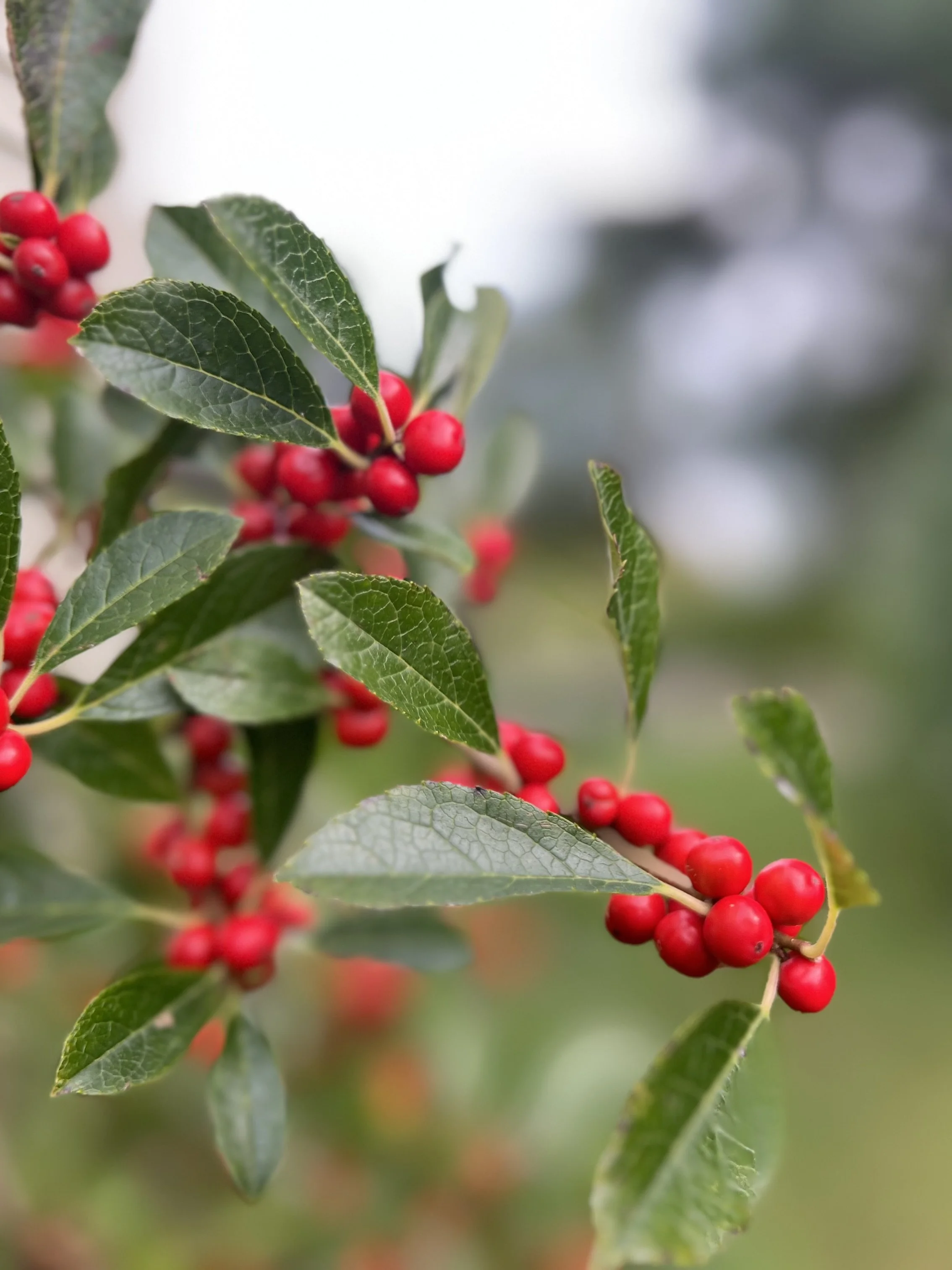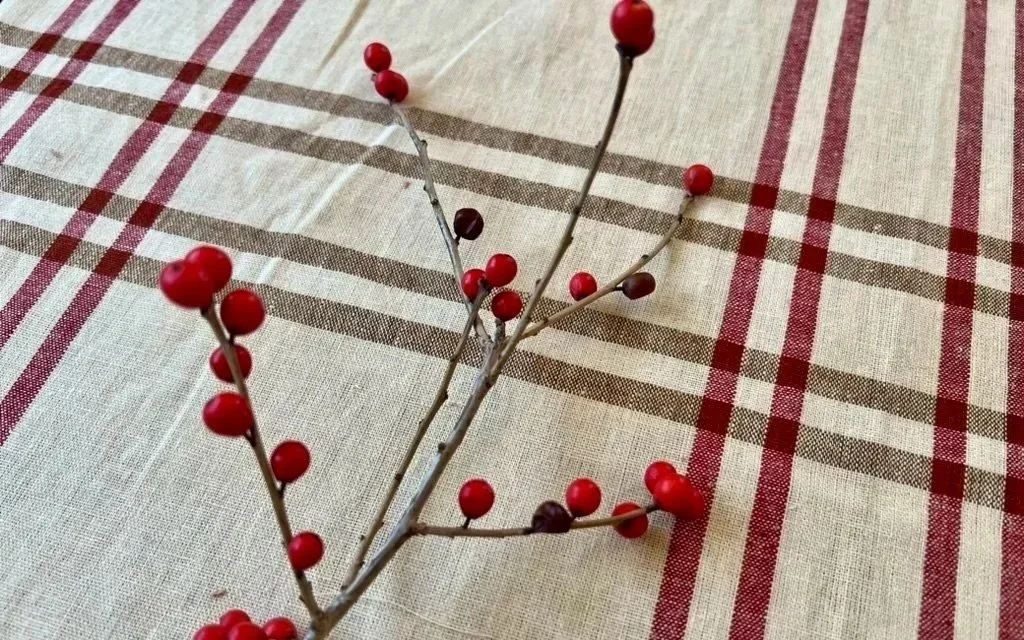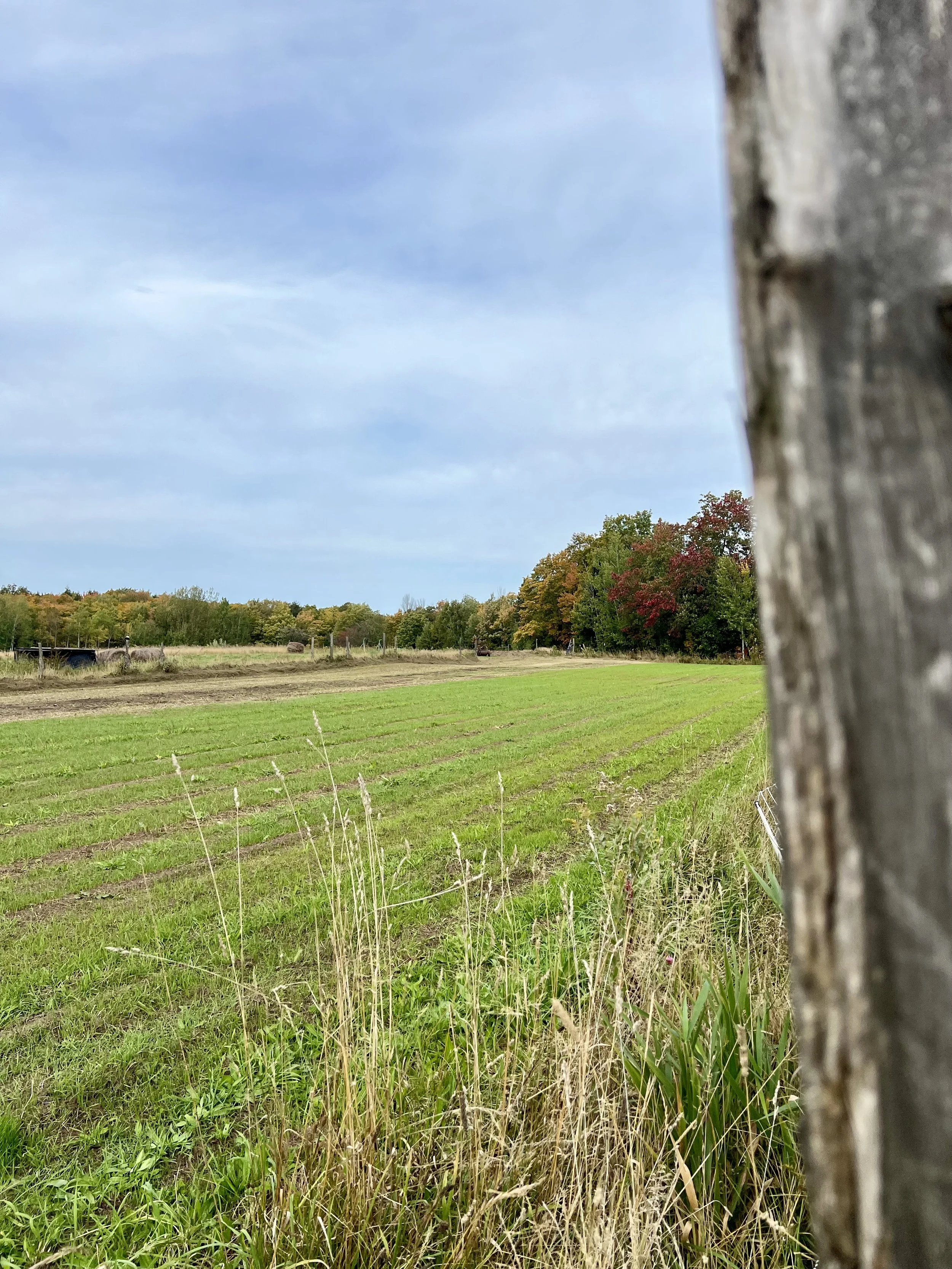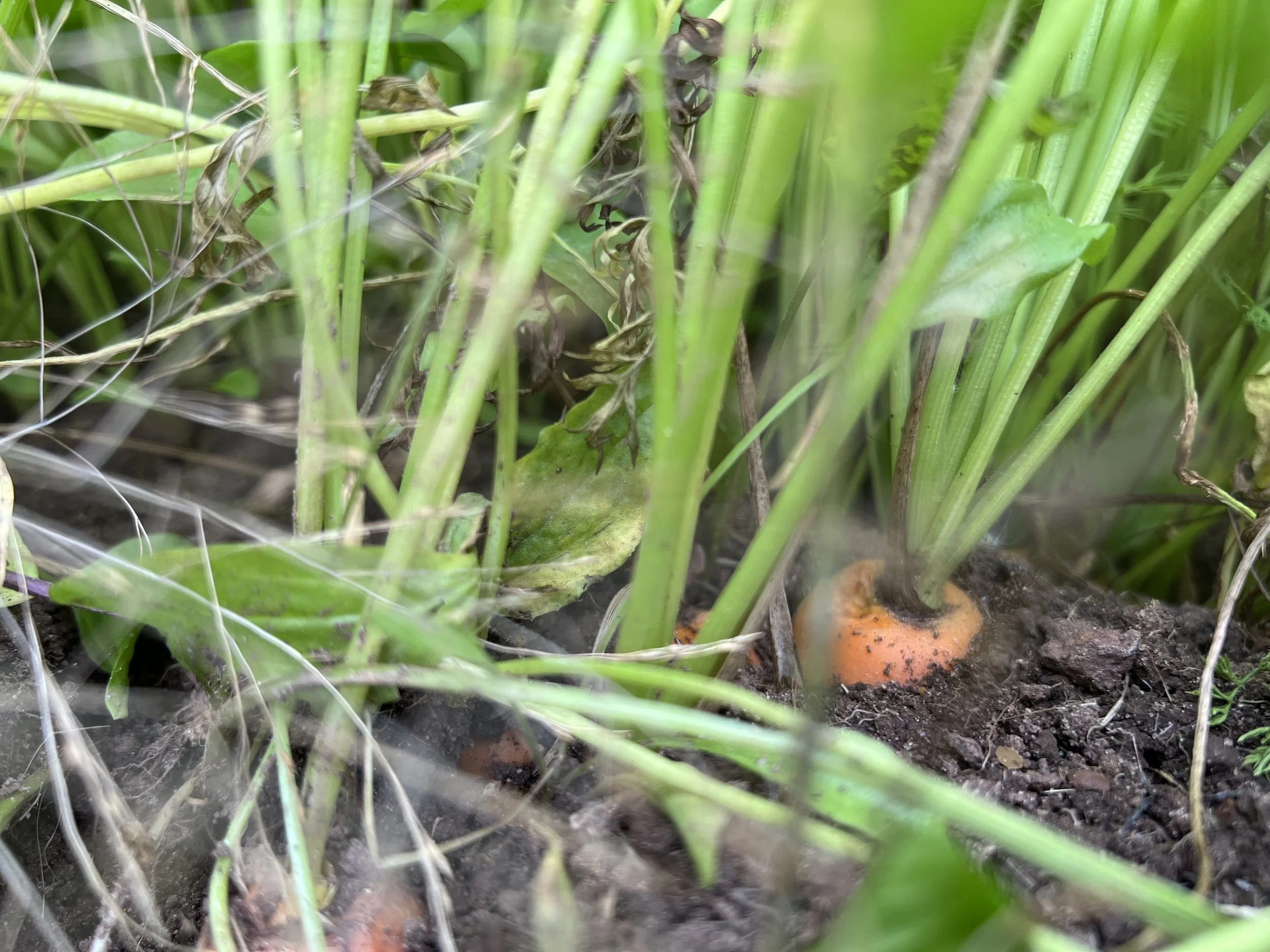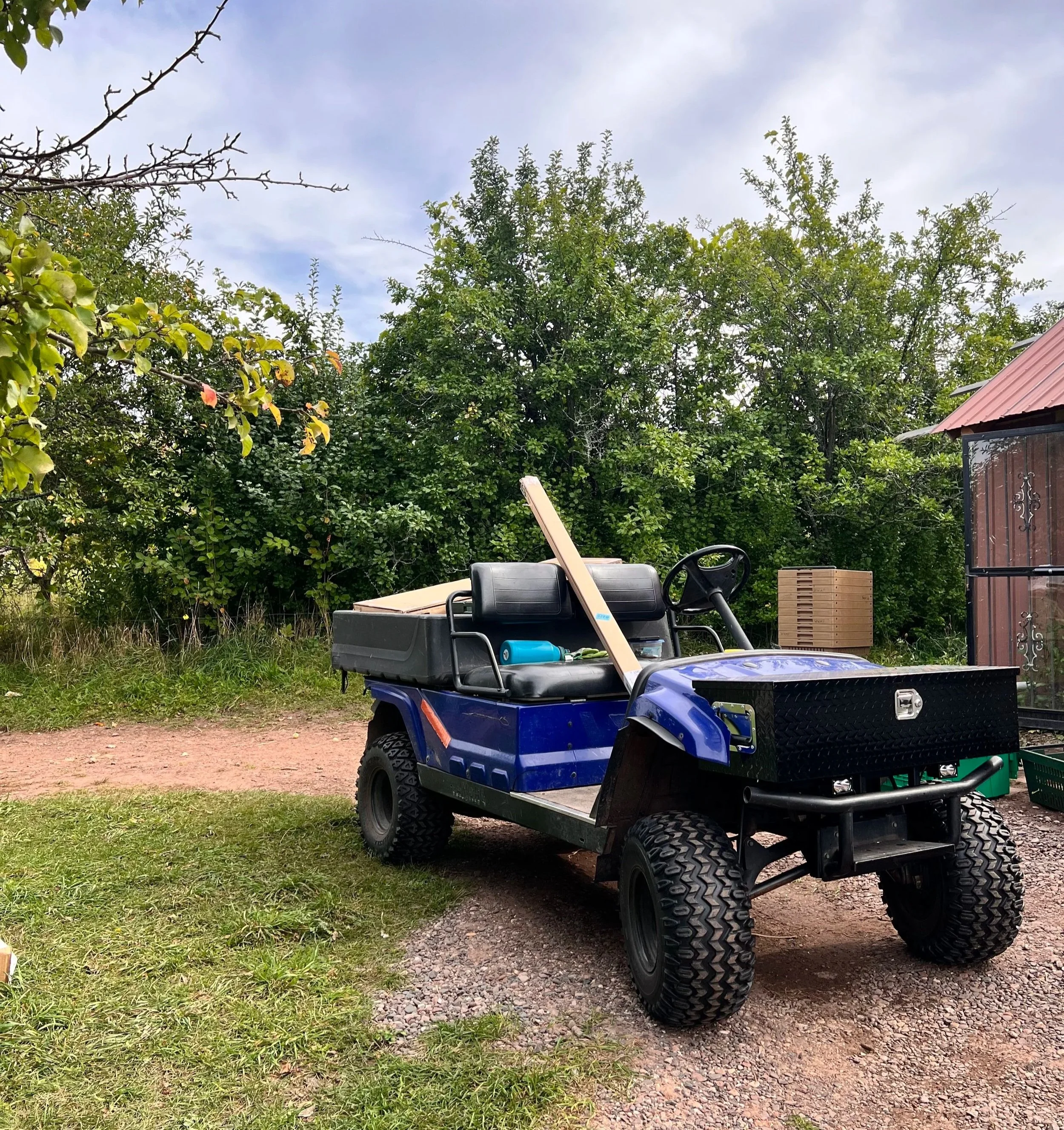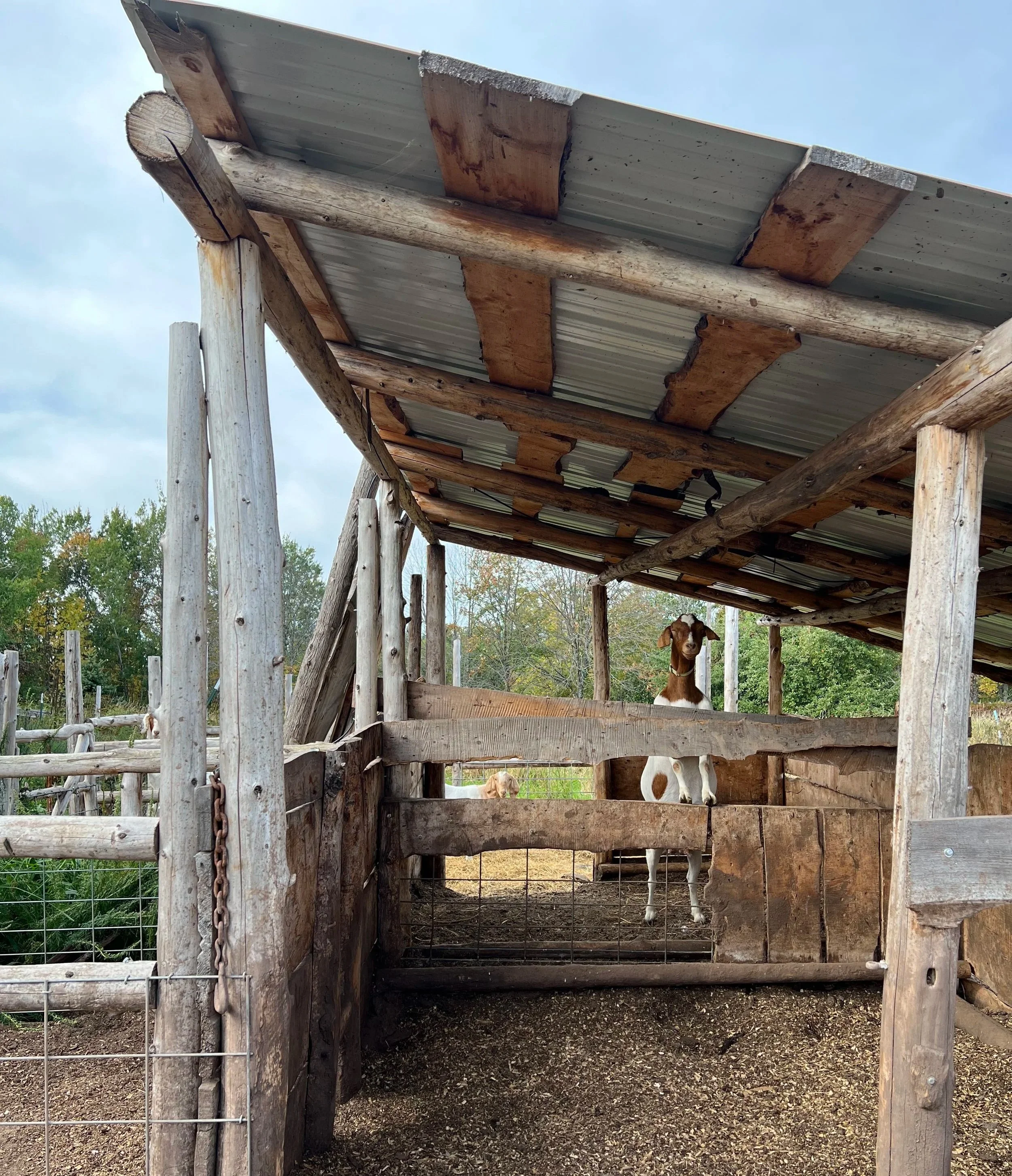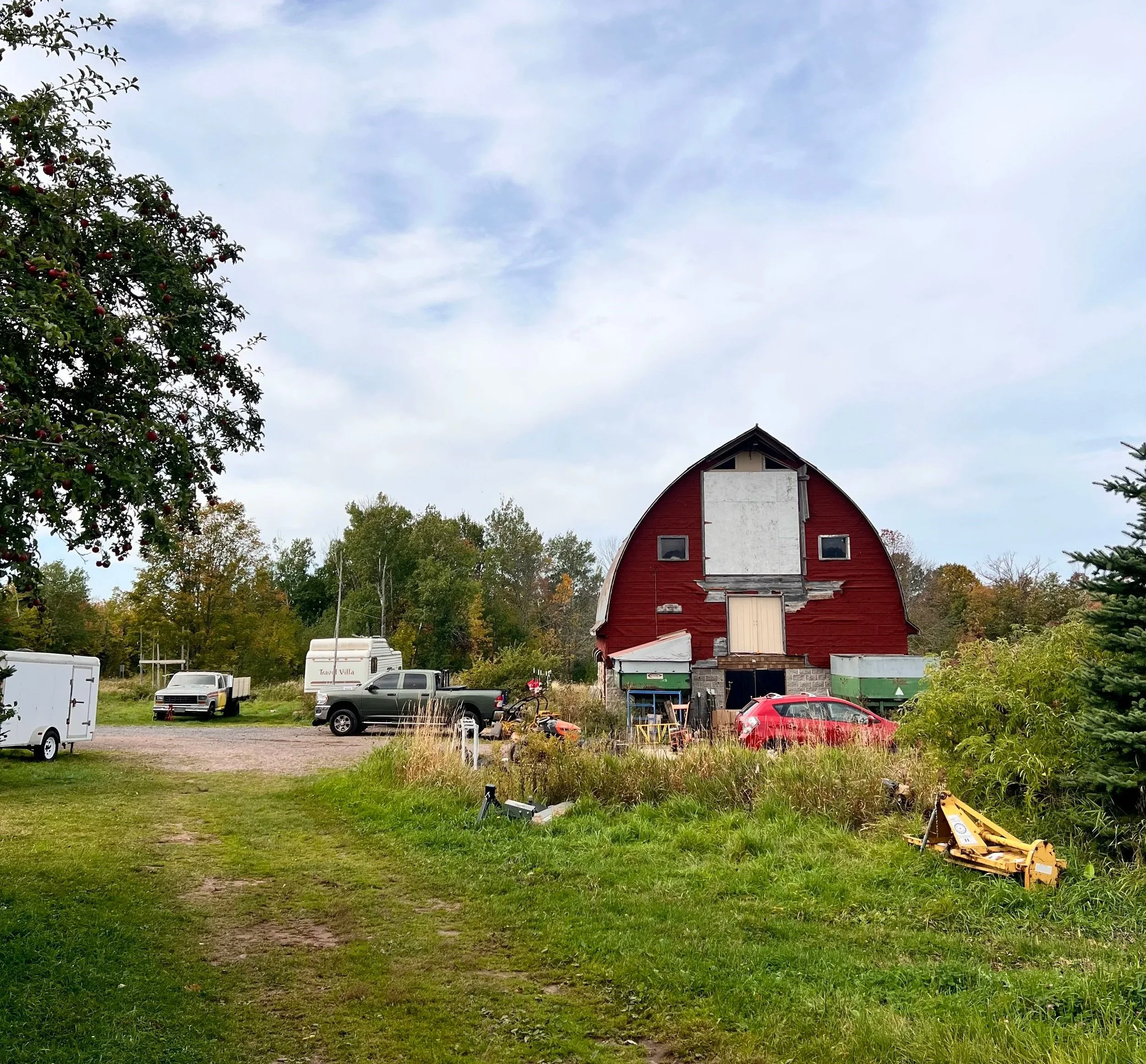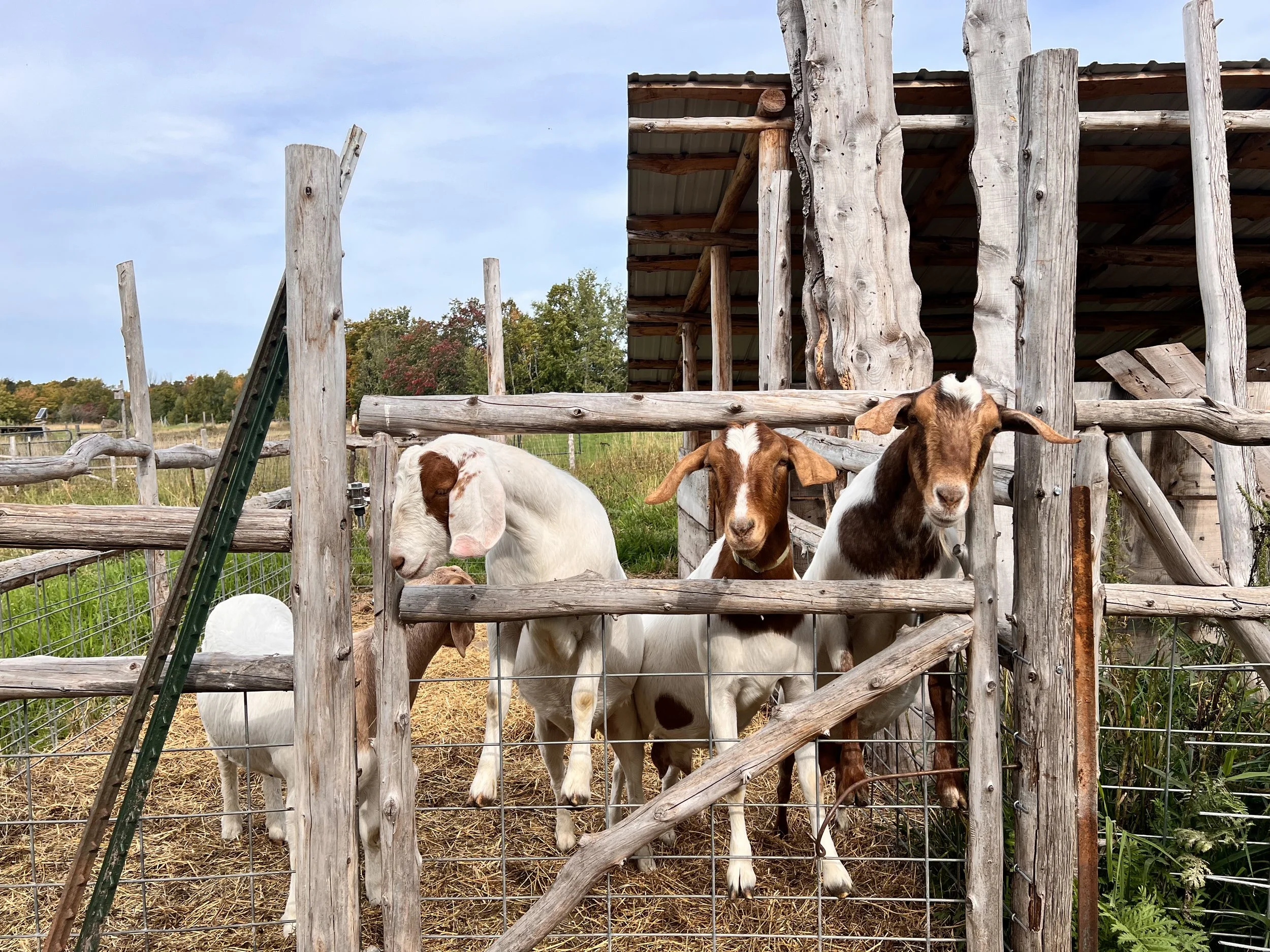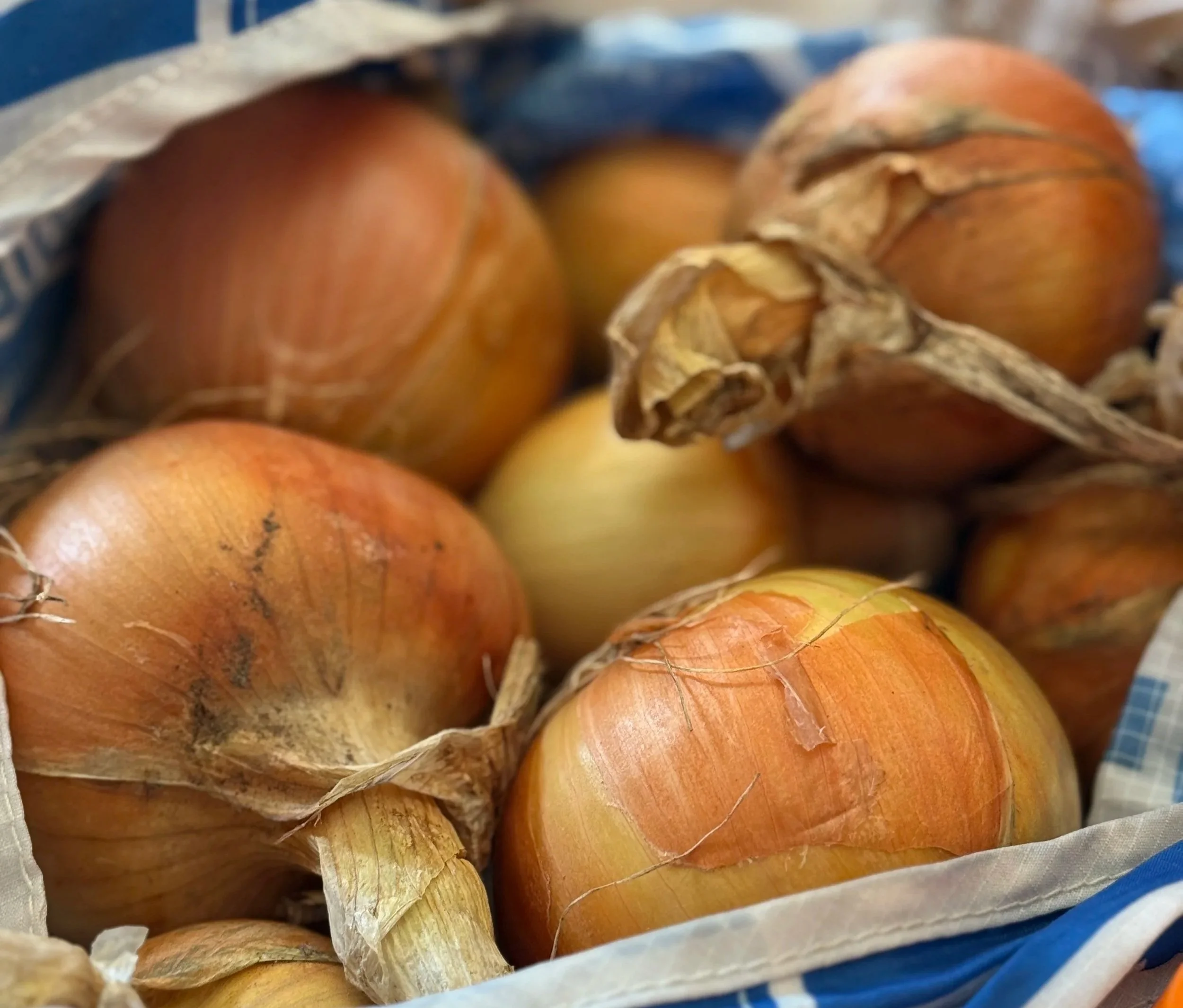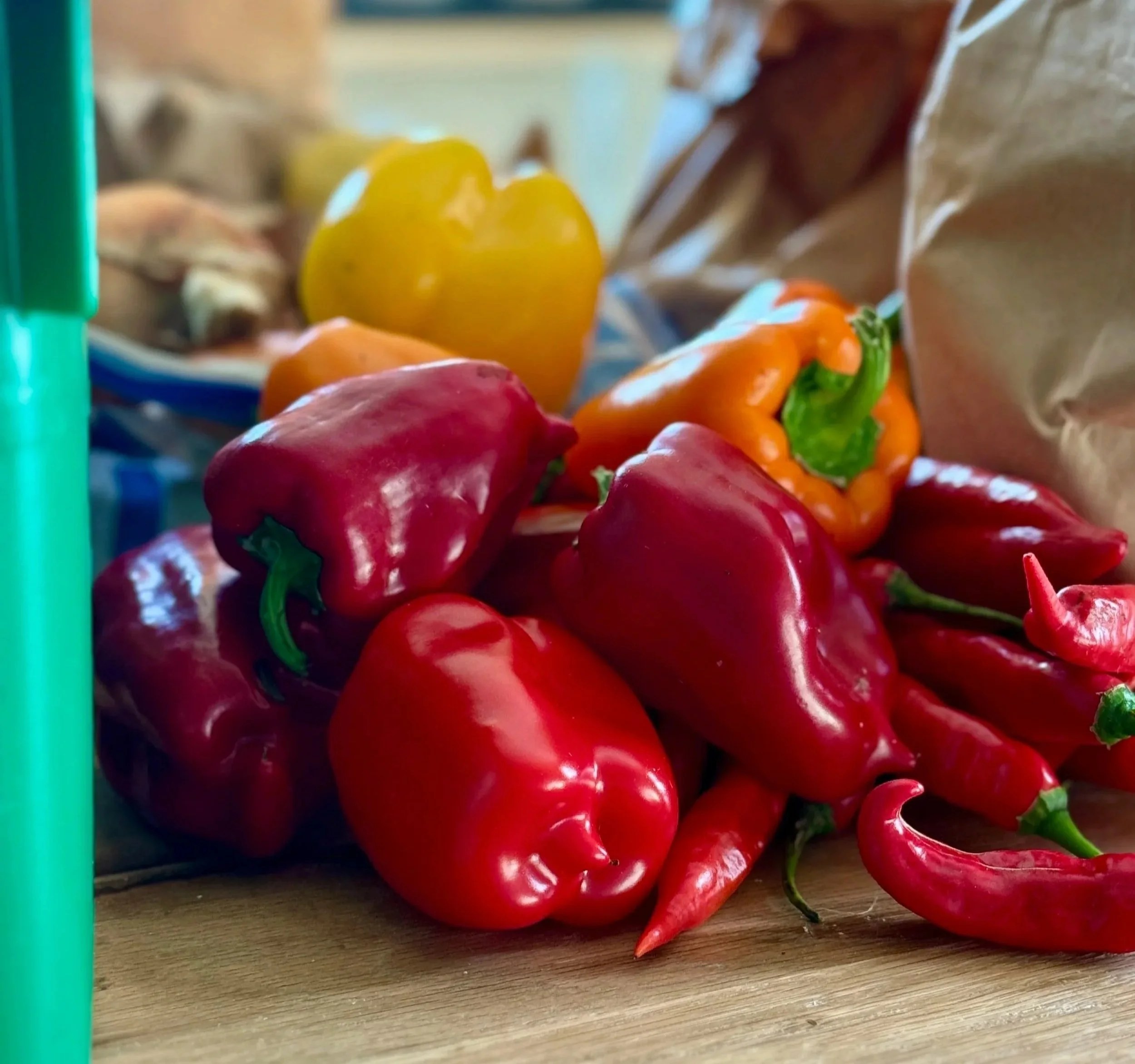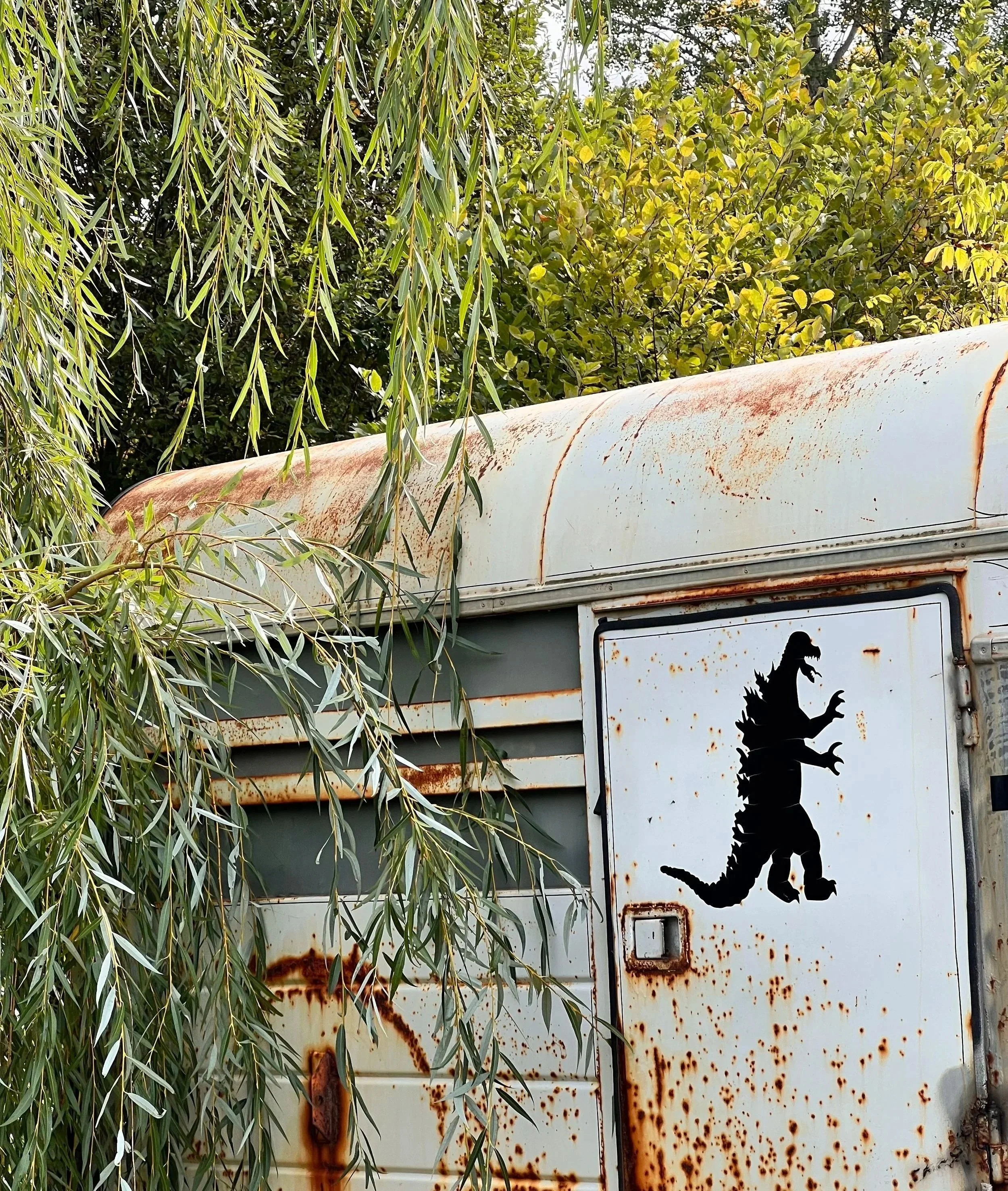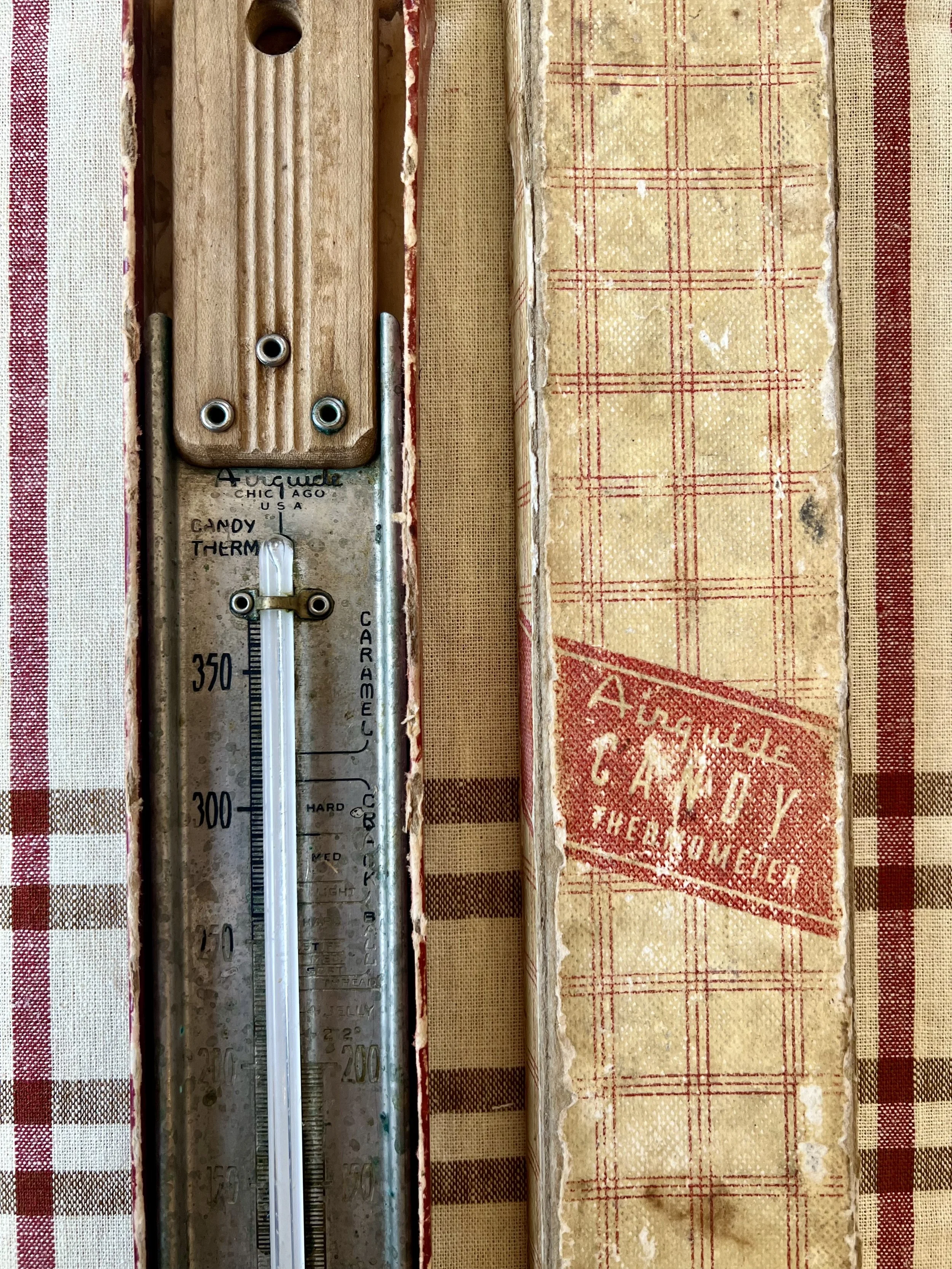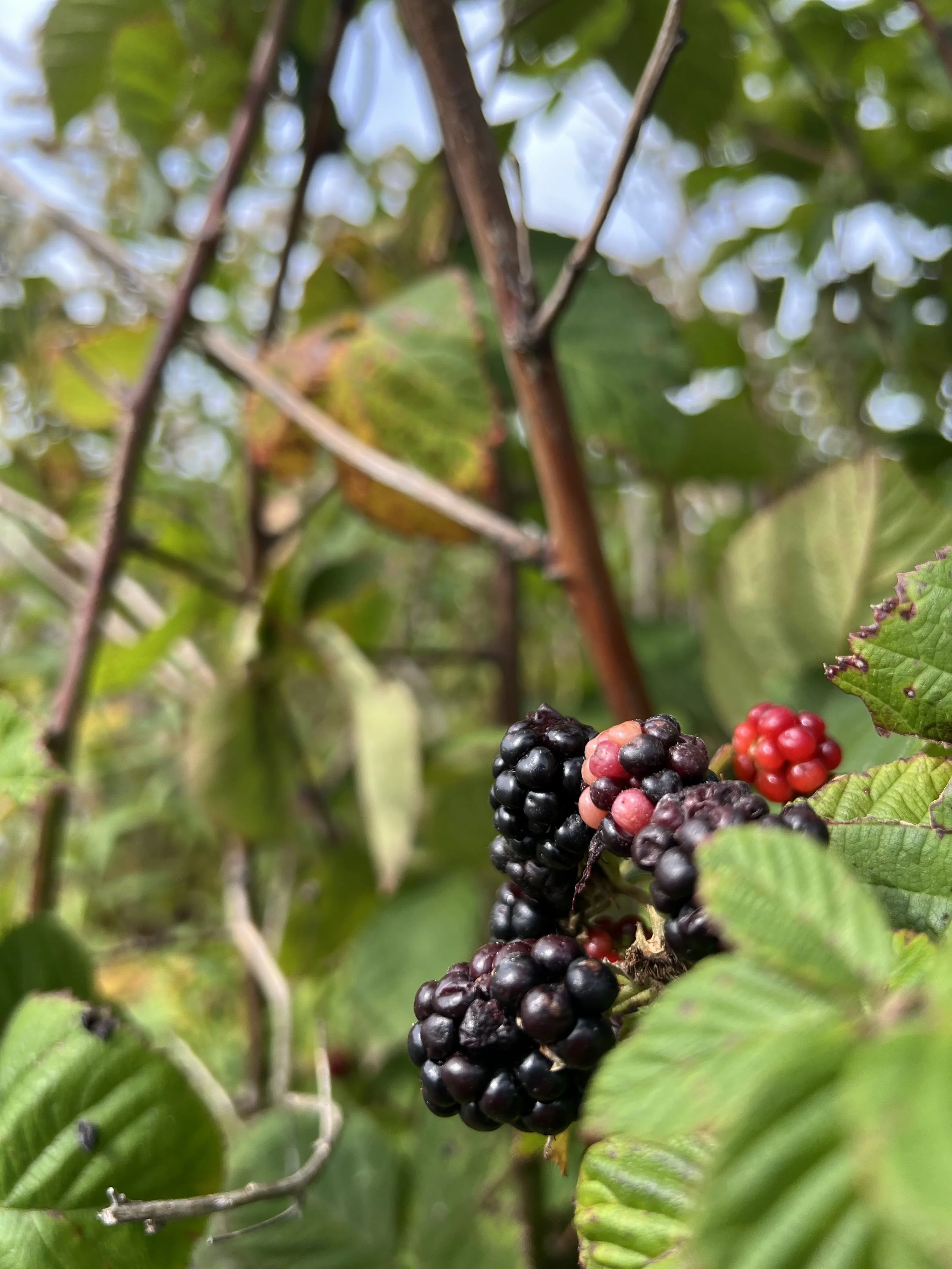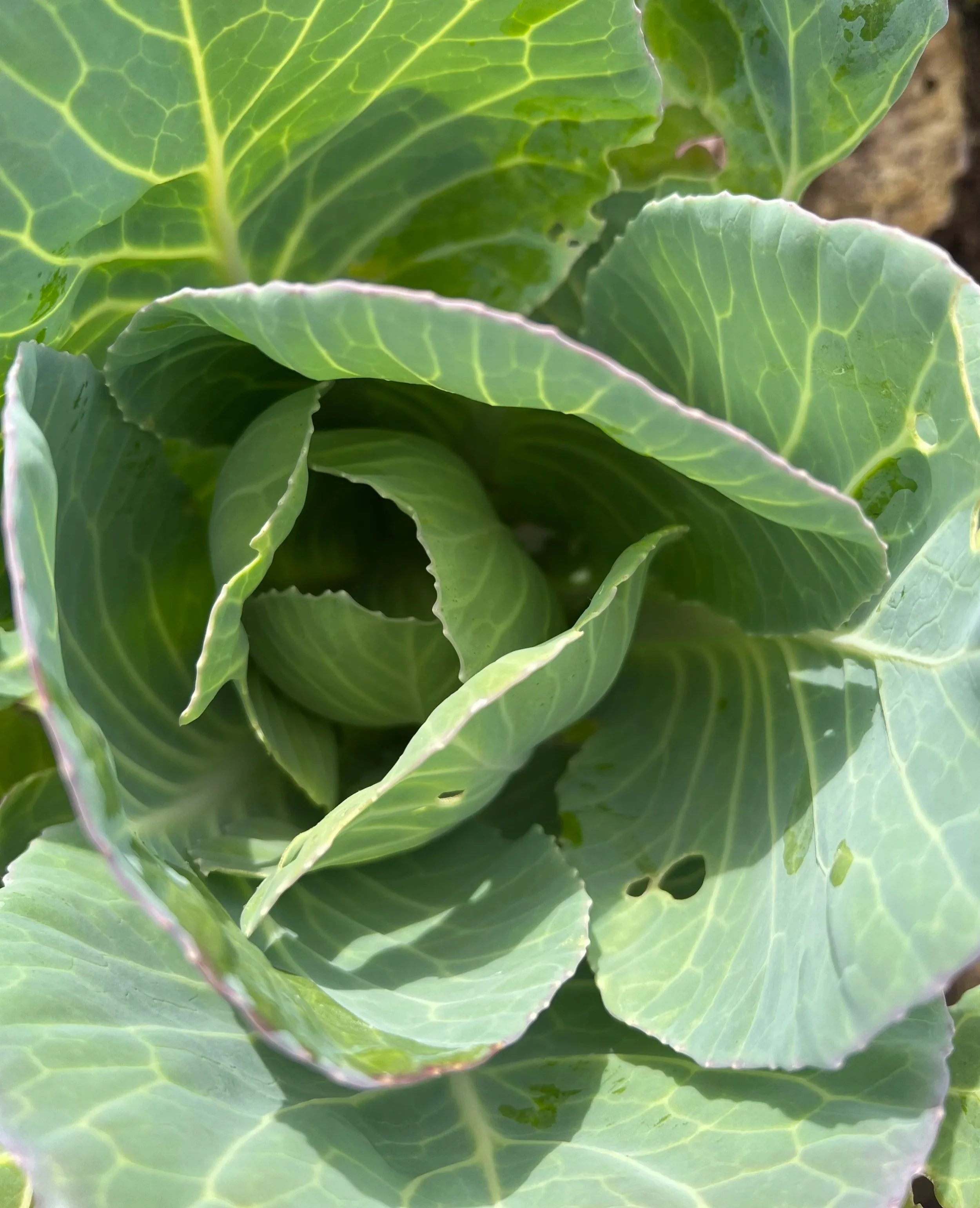
Taking it all in: Gina Kerr of Whispering Wild Market Farm
Gina Kerr and her husband Josh Kerr own and operate Whispering Wild Market Farm. They raise pastured pork, grow a wide variety of fruits and vegetables using all natural methods, raise chickens and ducks for free-range eggs and have added goats and lambs to their herd.
Shop their online store here or find them at the local Calumet and Hancock Farmers Markets.
Gina comes over for tea bearing quite the box - I’d asked if she could bring any heirloom tools she might have. A nurturer at heart, she removes a clipping of holly from the top with such gentleness it doesn’t lose a single of its bright-red berries.
The bush’s ability to keep it’s berries so late into the winter enchants and delights her and it is clear to see how awe – even at the oft-overlooked moments in nature – can inspire and sustain such a full farm operation. She then removes an array of colorful heirloom dishes and time-worn tools wrapped in cloth. We sit to chat far longer than expected, and, yet, just long enough.
Thank you, Gina, for coming over for the interview - it was a joy.
Introduction and editing by Claire Troemner
When did you start cooking and who taught you how to cook?
I started pretty young - my mom always included me in things. She kind of had a limited repertoire of recipes, but they all became family favorites. It was very americanized: tacos, spaghetti, those sorts of things… We also ordered a lot of pizza. If there was a pizza delivery guy coming, it was to our house.
Oddly enough, the person that actually really taught me how to cook was my ex husband's mother. I met him when I was 19 and I moved in with him and his mom pretty early on in our relationship. She was an amazing cook and she taught me a lot of real bare bones basics like how to make a roux, baking basics, using seasonings, and other things I had never seen before.
I kind of taught myself the rest like Mexican and Chinese cuisines. Chinese is my family's favorite. My husband has a very limited palette because of his allergies and Chinese is a real easy one for him because it's rice based.
Since your property used to be a family farm, were there any changes you needed to make?
When we first got here the land needed a lot of organic material to help it produce. It has been tilled for weed control for several years. The ground had basically been burned off. I thought we had clay soil until we had a soil sample tested and it turned out we had sandy loam.
But it acted like clay - it was hard as rocks, completely compacted. So the first couple of years we didn't have success growing anything. There was no fertility, it was just sad. We spent a good year or two throwing on every kind of organic material we could get.
So you started doing bakery?
Yeah mostly cookies and sweets and a little bit of bread. That was the first year when we were trying to kind of get our foot in the door at the markets.
We were figuring things out by learning and from the Master Gardeners class. I lived most of my life in Arizona and this was wildly different. I needed to get a feel for what to expect. We were watching every YouTube video that we could find about market gardening and gardening in general. We got Jean-Martin Fourtier’s and Elliot Coleman’s books and read up. We were inspired to do all kinds of things.
That first year that we really had to grow professionally to where I felt like I knew what I was doing. After a couple years, when our soil test came back positive, we did a ten person CSA and market. It went pretty well but there were a lot of flops - mostly because I had no idea how much to grow for ten people.
It was kind of a whirlwind. I think I planted a 30 inch batch of carrots. I was thinking “ohh man this is gonna be plenty of carrots.” It wasnot.
Were you doing your bakery under the name Whispering Wild?
Yeah, I got the name actually back in Arizona after we first visited here in 2015. I fell in love with it - it was exactly where I imagined living. My husband's father had the farm at the time, so I got to see the farm before there was a garden in the pasture. I had access to the little farm cart truck that we have now - we call it Mr. Blue - I was driving around and didn't have any kids with me. I think Josh had the baby.
I was going back out to meet up with them and driving out into the field. It just struck me to stop and kind of take it all in. The sun and the wind were hitting it just right that there was a wave across the grass. It was the loveliest thing I've ever seen in my life. I thought about what I wanted to name the farm and I thought about that moment. I wanted to capture that moment in words.
So you do a lot of livestock?
We didn't really have very much intention of doing any livestock when we came to the farm. We had a dozen chickens and wanted to keep that going for the eggs. A couple of people stopped and asked if we sold eggs because they saw the chickens wandering, we said “sure, no problem” and that was the first sale.
Then some friends from the MOPS (Mothers of Preschoolers) group had rabbits and they asked us if we could pet sit them. We were introduced to rabbits that way. For payment they gave us some manure which we added to the field. I thought “wow what great stuff!” It was fantastic and they produce a lot.
Between that and our initiation with the chickens, we then ended up getting a couple of pigs out from some of the neighbors - they raised cattle and pigs. So we got a couple of pigs just for our own needs. We raised two and one of the females was much bigger than the male. Josh thought she must have good genetics and that we should breed her.
It was not a not very beginner kind of attitude - I've never in my life wanted to raise pigs but I do like bacon and I can do quite a bit with some pork chops. Josh did some research and decided to go to the Berkshire line because it's considered really high quality meat. They do take a little bit longer to grow.
My daughter did like to show pigs. Josh got a little burned out last year and said he's ready to pull back entirely. I thought “whoa, whoa, whoa… You put so much infrastructure in that you won’t have to do again. Let’s pull back a little bit - cut it in half and see how that feels.”
How many pigs total did you have?
We had 24 pigs. 25 pigs total but one sow didn't breathe well so we took her to freezer camp.
You also have goats?
We just started getting into goats a few years ago. It's been a very slow process - we didn’t want to go too crazy because we have our plates already pretty full with the pigs.
I thought we’ll get a couple of goats, breed them, and see how it goes. So far, we're extremely happy with the meat. It's interesting - it's a chewier texture but it also falls apart easily. It's more dense but tender at the same time.
It's absolutely delicious and can actually taste like a fantastic steak. It's not goaty. We've had that same experience with lamb up here - that there's no gaminess to it, even with different breeds, different farms, and different feeding. It doesn't seem to matter except that it's from the Keweenaw. It would be interesting for somebody, that isn't me, to scientifically study.
What is an ingredient you cannot live without?
I love fresh onions and I love them cooked. They go in everything. What's funny is that I should probably keep them out of food because my husband might have sensitivity to them, but I'm not really willing. Sorry buddy you're gonna have to suffer.
What did you do before farming?
I was a massage therapist for twenty years. I started out right out of high school and worked all over the place. I had my own business for a long time, so I was very experienced in the whole entrepreneurial lifestyle.
How has that changed or informed the way you farm?
There's a real emphasis on body mechanics. In massage therapy, I was getting creative with your body using my body - I wasn’t just using my hands and thumbs but my elbow, a lot of passive stretching, and things like that.
That kind of thinking out-of-the-box and not relying on one tool helped me in farming. I try to think of ways to preserve my physical self which is why we started getting into tractor cultivation. We did a lot of things the hard way for a long time and it was very clear very quickly that we had to make changes.
What is your take on SNAP and other food assistance programs?
I'm a big proponent of food access. In this climate, we're being pushed and pulled in so many different ways. Food access is definitely being impacted and it's troublesome.
This has affected farmers - specifically small farmers or specialty crop farmers. It just seems counterproductive. The whole point was to have a way to support the local farmer to help support the community at a time of you know severe need - to help us build up to the point where we can meet those needs without just giving us money.
To slash the funding of not just SNAP but schools and Meals on Wheels, is gonna be huge. There's farms up here that lost twenty percent of their income last year. And they're not just taking the money away, they're taking the plans that were made - the foundation that they were building. It's upsetting
What would you like to see fresh locally that could be possible if possible?
Sweet potatoes - they're so delicious. Another big one, that I've tried to do up here but it's a struggle to get them to the point of harvest, is lemongrass. And rosemary - it just doesn't overwinter.
What are some of your favorite things to cook?
Mexican food is probably my favorite thing to cook, in particular: enchiladas. I have some good recipes under my belt that are easy, fast, and pretty darn authentic.
I asked you to bring any heirloom tools you have in your kitchen - could you discuss what you brought in more detail?
Some of the items were in the house when we got there. I'm not one-hundred-percent sure if they were my father in laws or my mother in laws.
They may very well have been from the early years of the house itself - the main footprint of the house is from 1908.
The dishes here are my grandmother's. She passed down all of this china. I don't often use it, except for special occasions. I just like the look of it - it feels so homey and beautiful to have in the china cabinet when you light it up. The other dishes are from a china set with the same pattern as my mother's.
What general advice would you give new vendors at the market?
I would say aesthetic is really going to be your selling point. Really look for some good inspirational ideas and use your own personality to spice it up. Don't just go there and throw on a plastic tablecloth, set things on the table, and expect to sell out. I learned that the hard way.
What is one of the loveliest compliments you've received from a customer?
Telling me that the children really like the produce. That their kid ate all the raspberries before they could get home.
What are some plans for the farm as time goes on?
We need a greenhouse big time. I would like a storefront which would serve as storage as well.
We started a kind of botanical garden situation - it's a garden for native pollinators in the back acreage and behind the pasture. I would like to expand it to a two acre space, make a little parking lot, and then do a boardwalk around that whole thing for people to enjoy. Like a nature walk with little informational kiosks
A smaller goal would be to get some little cabins built or have some camping spots. Maybe have some worker space so that people don't have to commute every day. Trying to get labor to do a commute is the hardest part.
Advice for new farmers?
You really gotta think about how much money you want to make. Is it going to be an income for you or is this just for fun? Is it the lifestyle that you love or are you trying to actually make a living?
Deep dive deep into that because if you're just doing it to try to make money, you're gonna be in for a surprise. It's going to be a lot more money input and then the output for a long time.
